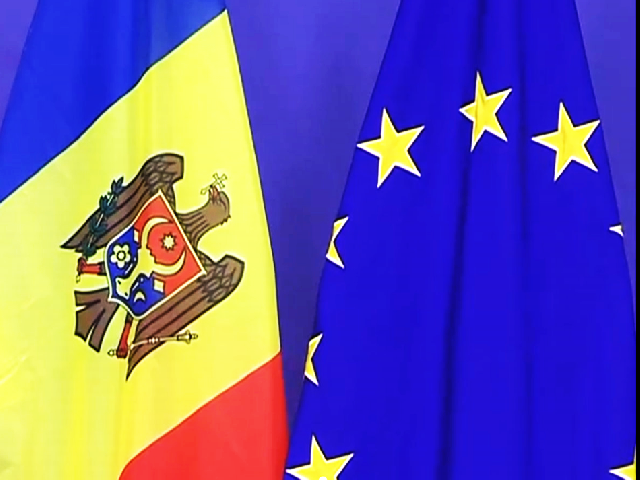Moldova Between Risks and Aspirations
The inauguration in February of the new minority government in the Republic of Moldova has thrown doubt on the pro-European commitment of the new cabinet.

Bogdan Matei, 22.05.2015, 14:17
The inauguration in February of the new minority government in the Republic of Moldova (a former Soviet state with a predominantly Romanian population), which has included the votes of the communist MPs, who are traditionally of pro-Russian orientation, has thrown doubt on the pro-European commitment of the Gaburici team.
The cabinet led by the young businessman, created in a long and grueling process after the November 30th elections by a minority coalition between the Liberal Democrats and Democrats, is seen by pundits as politically frail and geo-politically confused.
The Liberals, who are the most committed to the pro-Bucharest and pro-Brussels line, are determined to stay in the opposition. As a result, Gaburici has to prove that he can hold the line drawn by his pro-Western predecessors, Vlad Filat and Iurie Leanca. The reforms they promoted allowed Chisinau to sign the association and free trade agreements with the EU, in the hope that the former Soviet republic could join the EU in 2020. At this point, Iurie Leanca firmly states that his country is like a ship sailing adrift. Beyond the understandable grudge he holds for not keeping his office, the former prime ministers opinion is shared by experts.
The move closer to the EU was overshadowed by the political situation, but mostly by the fact that corruption was at a much higher level than Brussels thought, according to analyst Nicu Popescu from the Paris-based Institute for EU Security Studies. He points out mostly the fact that there is no well defined pro-European majority, alongside the disappearance of fabulous amounts of money from the banking system, almost a billion dollars scattered among ghost companies, which brought into question the good functioning of state institutions as a whole.
Popescu concludes that the Republic of Moldova is in a very serious credibility crisis, both in relation to the West and its own citizens. Romania, a fervent supporter of Moldova, claiming consistently commonality of language, history and culture, wants to pull its eastern neighbor in its western orbit, and has not hidden its concern with the counter-productive hesitations of the political class in Chisinau.
Iulian Chifu, former expert adviser to President Traian Basescu, whose passion for Moldova is well known, said: “Romania plays the role it has always played, advocate for Moldova within the EU. Also, Bucharest is open to any kind of support requests that may come from Moldova. At the same time, we are being realistic, we are members of the EU, and any support granted would be based on arguments. As usual, we go to Chisinau and we ask – reform, provide us with arguments to support you in your bid to join the EU. Therefore, the burden is on Chisinau still, to operate reforms, to strengthen the rule of law, to have an independent judiciary and fight corruption – these are the main criteria.
At this point, analyst Nicu Popescu warns, the lack of performance by the pro-European governance erodes the popularity of pro-European ideas and feeds the populist or pro-Russian politicians. The Communists and the Socialists in the parliamentary opposition can claim about half the popular vote. In addition, Chisinaus sovereignty remains questionable to the extent that it cannot reinstate its authority in the pro-Russian separatist region of Transdniestr, which has been de facto independent since 1992, after an armed conflict settled by Russian troops.
Iulian Chifu, who is now the head of the Center for Conflict Prevention and Early Warning, believes that the frailty of institutions in Chisinau elevates the risk of a Ukraine- type situation in Moldova, which cannot be ruled out: “The legitimate authorities in the Republic of Moldova lack military capabilities to match the concentration of armaments, troops and resources in the separatist region, and those landings across the Dniestr should raise the alarm in Chisinau; the way Moldova has been managing its budget does nothing to show me there is any real concern regarding this issue.
The West, speaking through high level envoys sent by Brussels and Washington, has been constant in its support for Moldovas independence, sovereignty and territorial integrity. However, few political voices in Chisinau are willing to speak up against the constitutional taboo of neutrality and plead for Moldovas NATO integration.
Iulian Chifu: “Of course the Republic of Moldova has to make its own plans. Its security options are not set in Bucharest, Washington or Brussels, but in Chisinau.
Analysts warn that Moldova is no Switzerland, militarily, economically or geo-politically, which voids the principle of neutrality at a time when Russia tries to satisfy its expansionist ambitions in the former Soviet states.






























